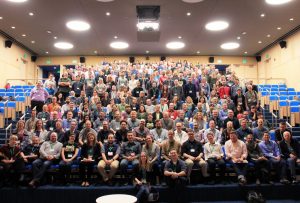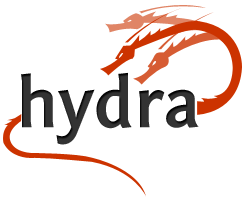The Duke University Libraries software development team just recently returned from a week in Boston, MA at a conference called Hydra Connect. We ate good seafood, admired beautiful cobblestones, strolled along the Charles River, and learned a ton about what’s going on in the Hydra-sphere.
At this point you may be scratching your head, exclaiming- huh?! Hydra? Hydrasphere? Have no fear, I shall explain!
Our repository, the Duke Digital Repository, is a Hydra/Fedora Repository. Hydra and Fedora are names for two prominent open-source communities in repository land. Fedora concerns itself with architecting the back-end of a repository- the storage layer. Hydra, on the other hand, refers to a multitude of end-user applications that one can architect on top of a Fedora repository to perform digital asset management. Pretty cool and pretty handy. Especially for someone that has no interest in architecting a repository from scratch.
And for a little context re: open source… the idea is that a community of like-minded individuals that care about a particular thing, will band together to develop a massively cool software product that meets a defined need, is supported and extended by the community, and is offered for free for someone to inspect, modify and/or enhance the source code.
I italicized ‘free’ to emphasize that while the software itself is free, and while the source code is available for download and modification it does take a certain suite of skills to architect a Hydra/Fedora Repository. It’s not currently an out-of-the-box solutions, but is moving in that direction with Hydra-in-a-Box. But I digress…
So. Why might someone be interested in joining an open-source community such as these? Well, for many reasons, some of which might ring true for you:
- Resources are thin. Talented developers are hard to find and harder to recruit. Working with an open source community means that 1) you have the source code to get started, 2) you have a community of people that are available (and generally enthusiastic) about being a resource, and 3) working collaboratively makes everything better. No one wants to go it alone.
- Governance. If one gets truly involved at the community level there are often opportunities for contributing thoughts and opinion that can help to shape and guide the software product. That’s super important when you want to get invested in a project and ensure that it fully meets you need. Going it alone is never a good option, and the whole idea of open-source is that it’s participatory, collaborative, and engaged.
- Give back. Perhaps you have a great idea. A fantastic use case. Perhaps one that could benefit a whole lot of other people and/or institutions. Well then share the love by participating in open-source. Instead of developing a behemoth locally that is not maintainable, contribute ideas or features or a new product back to the community. It benefits others, and it benefits you, by investing the community in the effort of folding features and enhancements back into the core.
Hydra Connect was a fantastic opportunity to mingle with like-minded professionals doing very similar work, and all really enthusiastic to share their efforts. They want you to get excited about their work. To see how they are participating in the community. How they are using this variety of open-source software solutions in new and innovative ways.
It’s easy to get bogged down at a local level with the micro details, and to lose the big picture. It was refreshing to step out of the office and get back into the frame of mind that recognizes and empowers the notion that there is a lot of power in participating in healthy communities of practice. There is also a lot of economy in it.
The team came back to Durham full of great ideas and a lot of enthusiasm. It has fueled a lot of fantastic discussion about the future of our repository software eco-system and how that complements our desire to focus on integration, community developed goodness, and sustainable practices for software development.
More to come as we turn that thought process into practice!






It’s a great idea and software developer will be got sharing their talent. Thanks “Duke University Libraries software development team”